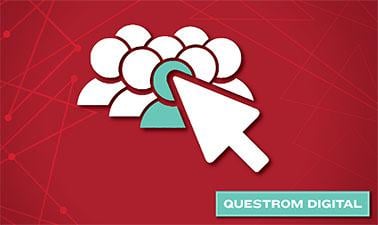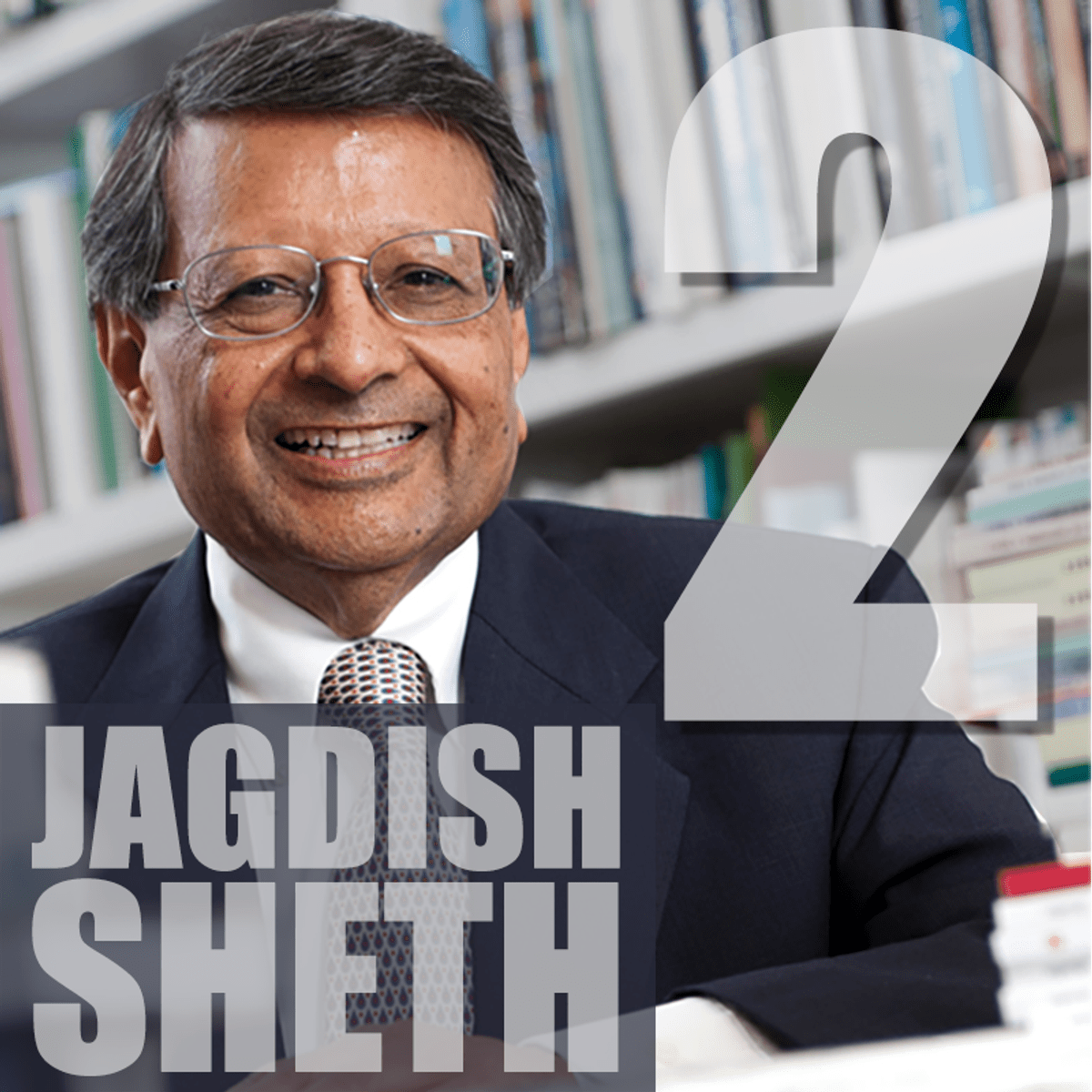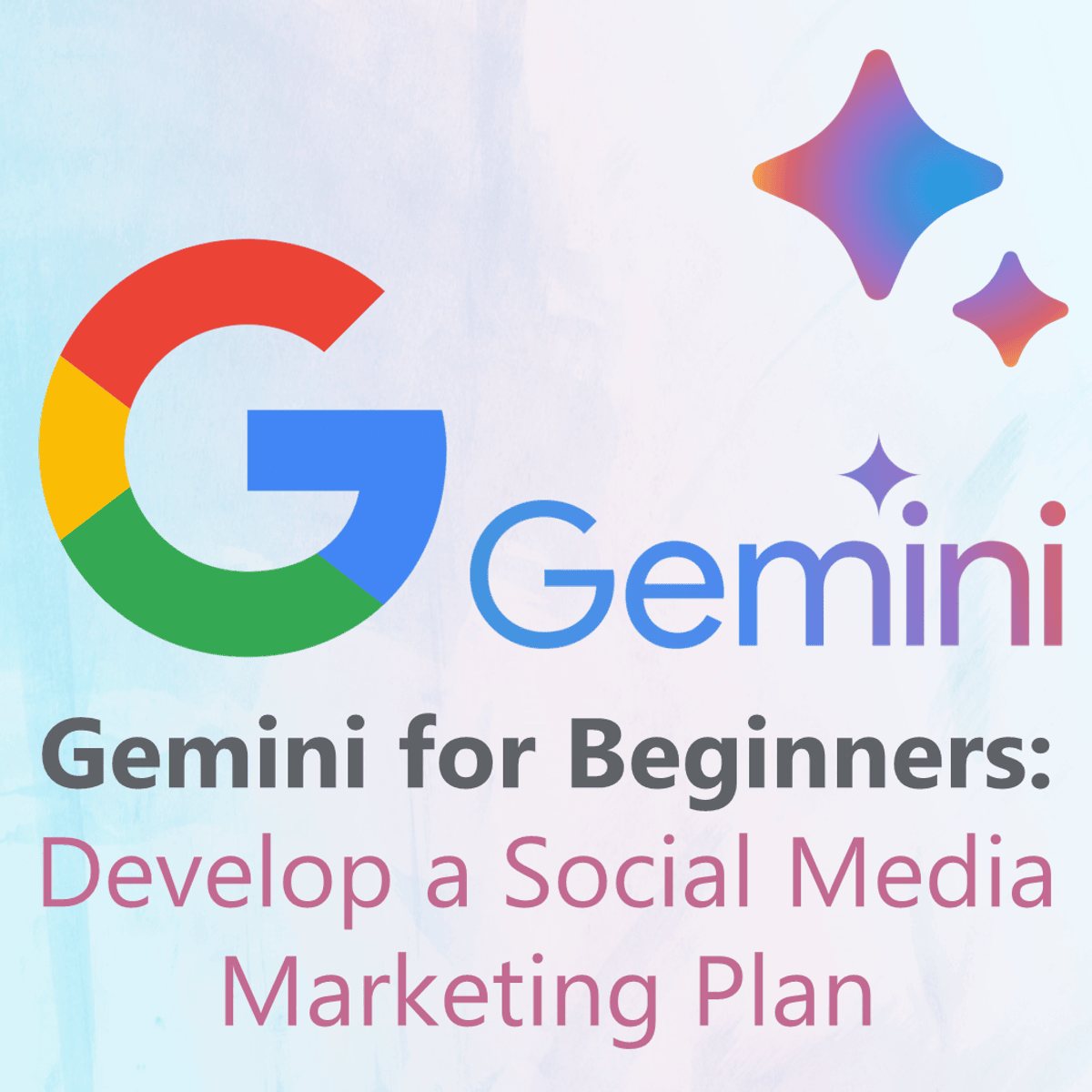Social Media Platforms
Comprehensive Guide to Social Media Platforms
Social media platforms are interactive digital channels that facilitate the creation, sharing, and aggregation of content, ideas, and information within virtual communities and networks. These platforms typically enable users to create profiles, connect with others, and generate or interact with user-generated content, which can range from text posts and comments to digital photos, videos, and live streams. The core function of social media is to enhance and extend human networks, allowing individuals, communities, and organizations to connect, communicate, and share.
Working in the realm of social media platforms can be incredibly dynamic and rewarding. It offers the opportunity to be at the forefront of digital communication, shaping how information is disseminated and consumed globally. Professionals in this field often find excitement in the fast-paced nature of trends, the creativity involved in content generation, and the analytical challenge of understanding user behavior and platform performance. Furthermore, the ability to connect with vast audiences and build communities provides a unique sense of impact and engagement.
Introduction to Social Media Platforms
Social media has fundamentally reshaped how we interact, conduct business, and perceive the world. Understanding these platforms is crucial not just for personal use, but also for a wide array of professional endeavors.
Definition and core functions of social media platforms
Social media platforms are essentially websites or applications that empower users to create and share content or to participate in social networking. The term "social" in this context highlights that these platforms are designed to enable communal activity and interaction. Key functions include facilitating communication, enabling content creation and sharing (text, images, videos), and fostering the development of online social networks by connecting user profiles with those of other individuals or groups. Platforms can be categorized by their primary function, such as social networking (e.g., Facebook, LinkedIn), microblogging (e.g., X, formerly Twitter), media sharing (e.g., Instagram, YouTube, TikTok), and discussion forums (e.g., Reddit, Quora).
These interactive technologies allow users to not only consume information but also to actively co-create, discuss, and modify content. This user-generated aspect is a defining characteristic, distinguishing social media from traditional media. Each platform typically requires users to create a service-specific profile, which serves as their digital identity within that community.
The global reach and accessibility of these platforms, primarily through web-based applications and mobile apps, have made them integral to modern life. They serve diverse purposes, from documenting personal memories and learning new things to forming friendships and promoting businesses, products, and ideas.
Role in modern communication and business
Social media platforms have revolutionized modern communication by providing instant, widespread, and interactive channels. They have transcended personal use to become indispensable tools for businesses, organizations, and public figures to engage with their audiences, build brand awareness, and disseminate information rapidly. For businesses, social media offers direct lines of communication with customers, enabling them to gather feedback, provide customer service, and market their products or services to a highly targeted audience. According to a study by Accenture, the global social commerce industry, where the entire shopping experience occurs on a social media platform, was valued at $492 billion and is projected to reach $1.2 trillion by 2025.
In the realm of news and information, social media platforms have become significant channels for consumption, publication, and sharing. However, this has also introduced challenges related to the spread of misinformation and the need for content moderation. Political discourse, social movements, and emergency communication are also increasingly mediated through these platforms, highlighting their profound societal impact.
The ability of social media to foster communities around shared interests or causes is another critical aspect of its role in modern society. These platforms empower individuals and groups to connect, organize, and advocate for change on a local or global scale.
Global user demographics and key statistics
The adoption of social media is a global phenomenon, with billions of users worldwide. As of 2024, there were over five billion global social media users, representing more than 62% of the world's population. Statistics indicate a consistent upward trend in user numbers; for example, the number of users grew from 3.6 billion in 2020 to an estimated 3.96 billion in 2022. This growth is significantly driven by increased internet penetration and the widespread adoption of smartphones. In 2022, global internet penetration reached an estimated 5.3 billion people, or 66% of the world's population.
The social media market itself is experiencing substantial growth. One report forecasted the global social media platforms market size to be USD 709.64 billion in 2024, with an expectation to reach USD 9877.38 billion by 2033, growing at a CAGR of 33.99%. Another analysis projected the social networking market to increase by USD 312.3 billion between 2024 and 2029, at a CAGR of 21.6%. The social media management market, which focuses on tools and services for businesses, was valued at USD 17.5 billion in 2022 and is expected to reach USD 51.8 billion by 2027.
Demographically, Gen Z and Millennial users are key drivers of social commerce, predicted to account for 62% of global social commerce spending by 2025. While specific platform popularity can vary by region and age group, major platforms like Facebook, YouTube, WhatsApp, Instagram, and TikTok boast hundreds of millions, and in some cases billions, of active users.
Evolution of Social Media Platforms
The landscape of social media is in a constant state of flux, driven by technological innovation and evolving user expectations. Tracing its history reveals a fascinating journey from simple communication tools to complex, multifaceted digital environments.
Historical milestones (e.g., early platforms like MySpace, Facebook)
The roots of social media can be traced back to early forms of electronic communication like email and bulletin board systems (BBS) in the 1970s and 1980s. Usenet, established in 1980, is considered one of the first open social media applications. However, the first platform often cited as a true social networking site is SixDegrees.com, launched in 1997. It allowed users to create profiles and connect with friends, based on the "six degrees of separation" concept.
The early 2000s saw the rise of platforms like Friendster (2002), which focused on connecting friends of friends and gained significant popularity, particularly in Asia as a social gaming site. LinkedIn also emerged in 2003 as the first major professional networking platform. MySpace, launched in 2003, became a dominant force, allowing users to personalize profiles extensively and connect through music and blogs. Facebook, initially launched in 2004 for Harvard students, rapidly expanded and eventually surpassed MySpace in popularity, becoming a defining platform of the social media era. YouTube, founded in 2005, revolutionized video sharing, and Twitter (now X), launched in 2006, popularized microblogging with its short-form content.
The 2010s brought further diversification with the launch of visually focused platforms like Instagram (2010) and Pinterest (2010), followed by Snapchat (2011) with its ephemeral messaging, and later TikTok (initially launched as Douyin in China in 2016, and internationally in 2017), which has seen explosive growth with its short-form video content.
Technological advancements driving platform development
Technological advancements have been the bedrock of social media's evolution. The advent of Web 2.0 technologies was crucial, shifting the internet from a static information repository to a platform for interactive, user-generated content. The proliferation of smartphones and mobile internet access dramatically changed how and where people use social media, making it an always-on, ubiquitous presence in daily life.
Improvements in internet bandwidth and data compression have enabled the seamless sharing of rich media like high-definition videos and live streams. Cloud computing infrastructure has provided the scalability needed to support billions of users and vast amounts of data. Furthermore, the development of sophisticated algorithms for content curation, recommendation, and targeted advertising has become a core component of most major platforms, shaping user experiences and platform monetization strategies.
More recently, technologies like Artificial Intelligence (AI) and Machine Learning (ML) are playing an increasingly significant role in personalization, content moderation, and the development of new features. Augmented Reality (AR) and Virtual Reality (VR) are also beginning to make inroads, offering more immersive and interactive experiences.
Shifts in user behavior and platform purposes
User behavior on social media has evolved significantly. Initially, platforms were primarily used for connecting with known friends and family. Over time, usage has expanded to include following public figures and brands, consuming news, engaging in discussions on specific topics, online shopping (social commerce), and professional networking. There's a noticeable trend towards the consumption of short-form video content, popularized by platforms like TikTok and Instagram Reels.
The purpose of platforms has also broadened. While social connection remains a core function, many platforms have become significant channels for entertainment, marketing, customer service, and even political mobilization. The rise of the "creator economy" signifies a shift where individuals can build careers and monetize their content directly through these platforms. However, this evolution has also brought challenges, including concerns about misinformation, mental well-being, data privacy, and the quality of online discourse, leading to increased scrutiny and calls for regulation.
Users are also becoming more selective about the platforms they use and how they engage, with some seeking out more niche or private communities that offer authenticity and meaningful connection. This indicates a potential move away from passive consumption on large, algorithm-driven platforms towards more intentional and community-focused interactions.
Technical Infrastructure and Algorithms
Behind the seamless user experience of social media platforms lies a complex web of technical infrastructure and sophisticated algorithms. These are the engines that power content delivery, user interaction, and platform scalability.
Backend architecture and data management
The backend architecture of a social media platform is a critical component that handles everything from user authentication and data storage to content delivery and real-time interactions. These systems are typically built on distributed architectures to handle the massive scale of users and data. This often involves a combination of microservices, where different functionalities of the platform are broken down into smaller, independent services that can be developed, deployed, and scaled separately.
Data management is a monumental task for social media giants. They deal with petabytes, if not exabytes, of user-generated content, profile information, interaction data, and metadata. This data is stored in a variety of database systems, including relational databases for structured data (like user profiles), NoSQL databases for unstructured or semi-structured data (like posts and comments), and specialized databases for things like graph data (to manage connections between users).
Content Delivery Networks (CDNs) play a vital role in ensuring that content like images and videos loads quickly for users regardless of their geographical location. CDNs cache content on servers distributed globally, so users can access it from a server closer to them, reducing latency. Scalability, reliability, and fault tolerance are paramount design considerations for backend systems to ensure platforms remain available and performant even under extreme load or in the event of hardware failures.
Algorithmic content curation and recommendation systems
Most modern social media platforms employ sophisticated algorithms to curate the content users see in their feeds and to recommend new content, accounts to follow, or products to buy. These algorithms analyze a vast array of signals, including a user's past interactions (likes, shares, comments, viewing time), the people they follow, the topics they engage with, the popularity and recency of content, and even information from their profile.
The goal of these recommendation systems is typically to maximize user engagement, keeping users on the platform longer and showing them content they are likely to find relevant or interesting. Machine learning models, particularly deep learning, are extensively used to identify patterns and make predictions about user preferences. These algorithms are constantly being updated and refined based on new data and evolving user behavior.
While algorithmic curation can enhance user experience by filtering out noise and surfacing relevant information, it has also faced criticism. Concerns include the creation of filter bubbles or echo chambers (where users are primarily exposed to content that reinforces their existing beliefs), the potential for algorithmic bias, and the lack of transparency in how these systems operate.
Security protocols and data privacy measures
With the vast amounts of personal data they handle, security and data privacy are critical concerns for social media platforms. They implement a range of security protocols to protect user accounts and data from unauthorized access, breaches, and other malicious activities. These include measures like strong password policies, two-factor authentication (2FA), encryption of data both in transit (using protocols like HTTPS) and at rest, and regular security audits and penetration testing.
Data privacy measures are guided by internal policies and increasingly by external regulations like the General Data Protection Regulation (GDPR) in Europe and various state-level laws in the US. Platforms provide users with privacy settings to control who can see their information and posts. They also have policies regarding data collection, usage, and sharing, although the transparency and adequacy of these policies are often subjects of public and regulatory debate.
Challenges in this area include combating phishing attacks, malware distribution, account takeovers, and protecting against large-scale data breaches. The ethical implications of data usage, particularly for targeted advertising and algorithmic profiling, are also ongoing areas of concern and discussion.
Career Paths in Social Media Platforms
The rapid growth and pervasive influence of social media have created a diverse range of career opportunities. Professionals in this field are instrumental in how organizations connect with audiences, build brands, and drive engagement in the digital landscape. Whether you're creative, analytical, strategic, or a blend of all three, there's likely a role that aligns with your skills and interests.
Embarking on a career related to social media platforms can be an exciting journey, filled with opportunities for innovation and impact. For those new to the field or considering a career pivot, it's a domain that often values demonstrable skills and a proactive approach to learning as much as formal qualifications. While the dynamic nature of social media means continuous learning is essential, the accessibility of online resources and the ability to build a portfolio through personal projects or freelance work can provide a viable entry point. Remember, every expert was once a beginner, and your unique perspective can be a valuable asset.
Roles: Social Media Manager, Content Strategist, Data Analyst
Several key roles define the professional landscape of social media. The Social Media Manager is often the orchestrator of a brand's social media presence. Responsibilities typically include developing and implementing social media strategies, creating and curating content, managing online communities, monitoring engagement, and reporting on performance. This role requires a blend of creativity, communication skills, and an understanding of different platform nuances.
A Content Strategist focuses more specifically on the planning, development, and management of content across various digital channels, including social media. They identify target audiences, define content themes and messaging, create content calendars, and ensure that all content aligns with the brand's voice and marketing objectives. Strong writing, editing, and creative skills are paramount, along with an understanding of SEO and content performance metrics.
The Social Media Data Analyst plays a crucial role in measuring the effectiveness of social media efforts and uncovering insights from data. They track key performance indicators (KPIs), analyze trends in user behavior, assess campaign ROI, and provide data-driven recommendations to optimize strategies. This role demands strong analytical skills, proficiency with data analysis tools, and the ability to translate complex data into actionable insights.
Other specialized roles include Community Manager (focused on building and nurturing online communities), Social Media Advertising Specialist (managing paid social media campaigns), Influencer Marketing Manager (collaborating with influencers), and Social Media Customer Service Representative. The field is continually evolving, leading to the emergence of new and more specialized positions.
For those looking to build a foundational understanding or enhance specific skills in these areas, online courses can be an excellent resource. OpenCourser offers a wide array of courses that can help you delve into the intricacies of social media marketing and management.
These courses can help build a foundation in social media principles:
Consider these books for a deeper dive into social media strategy and execution:
You may also wish to explore these related career paths:
Skills required (e.g., analytics, creative writing)
Success in social media careers hinges on a diverse skill set, encompassing both hard and soft skills. Communication skills are fundamental, including excellent writing, editing, and proofreading abilities for creating engaging and error-free content. Visual communication and an eye for design are also increasingly important, especially for platforms like Instagram and TikTok.
Analytical skills are crucial for understanding data, tracking performance metrics, and making data-driven decisions. This includes the ability to use analytics tools and interpret results to optimize campaigns. Creativity and strategic thinking are essential for developing innovative campaigns, solving problems, and adapting to the ever-changing social media landscape. A deep knowledge of various social media platforms, their features, algorithms, and best practices is also a core requirement.
Other important skills include customer service (as many interactions involve addressing customer queries or concerns), time management and planning (to manage multiple campaigns and content calendars effectively), adaptability (to keep up with new trends and platform updates), and SEO knowledge (to optimize content for discoverability). Soft skills like collaboration, empathy, and cultural awareness are also highly valued.
Many of these skills can be honed through practical experience and targeted learning. Platforms like OpenCourser's marketing section offer numerous courses to develop these competencies.
These courses focus on developing practical social media skills:
These books offer insights into essential social media skills:
Industry certifications and career progression
While a specific degree isn't always mandatory for entry-level social media roles, relevant certifications can enhance your resume and demonstrate specialized knowledge. Many platform providers (like Meta, Google) and independent organizations offer certifications in areas like social media marketing, digital marketing, and social media advertising.
Career progression in social media can take various paths. One might start in a specialist role (e.g., Social Media Coordinator) and advance to a Social Media Manager, then potentially to a Head of Social Media or Director of Digital Marketing. Alternatively, individuals might specialize further in areas like analytics, content strategy, or paid advertising, becoming experts in those niches. Freelancing and consulting are also common career paths for experienced social media professionals, offering flexibility and the opportunity to work with diverse clients. [xon579]
Continuous learning is key to career advancement in this rapidly evolving field. Staying updated on new platforms, features, trends, and best practices is essential. Networking with other professionals and building a strong online presence can also open doors to new opportunities. For those aiming for leadership roles, developing strategic thinking, team management, and budget management skills becomes increasingly important.
Consider these courses for advancing your social media career:
These books provide guidance on career development in social media:
Formal Education and Academic Research
While practical skills and experience are highly valued in the social media industry, formal education and academic research play a significant role in shaping our understanding of these platforms and preparing professionals for more strategic and research-oriented roles. Academic inquiry delves into the societal impacts, psychological effects, and communication dynamics of social media, providing a critical lens on this pervasive technology.
Relevant degrees (e.g., Digital Marketing, Computer Science)
Several degree paths can provide a strong foundation for a career related to social media platforms. A degree in Digital Marketing or Marketing with a digital focus is a direct route, often covering topics like social media strategy, content marketing, SEO, analytics, and campaign management.
A Communications or Journalism degree can equip individuals with strong writing, storytelling, and media production skills, which are highly transferable to content creation and public relations roles within the social media sphere. For those interested in the technical underpinnings of social media, a Computer Science or Software Engineering degree is essential. This path is relevant for roles in platform development, data science, and cybersecurity related to social media.
Other relevant fields include Psychology or Sociology, which can provide insights into user behavior, online communities, and the societal impact of social media – valuable for roles in user research, community management, or policy. Business Administration or Management degrees can be beneficial for those aspiring to leadership positions, focusing on strategy, operations, and financial aspects of social media businesses. Increasingly, interdisciplinary programs focusing on "Media Studies," "New Media," or "Digital Culture" are emerging, offering a holistic understanding of the digital landscape.
For individuals exploring these educational paths, OpenCourser provides access to a multitude of courses that can complement formal degree programs. For instance, students in a traditional marketing program might supplement their learning with specialized online courses in social media analytics or influencer marketing.
These courses can offer a glimpse into academic-level thinking about social media:
These books delve into the broader impact and study of social media:
University research on social media impact
Universities and research institutions worldwide are actively investigating the multifaceted impact of social media. Research areas are diverse and span multiple disciplines. One significant area of focus is the psychological impact of social media, including its effects on mental health (e.g., anxiety, depression, body image, FOMO), addiction, and self-esteem. Studies often explore how platform design, usage patterns, and content exposure contribute to these outcomes.
Another critical research domain is the spread of information and misinformation. Academics study how false or misleading content propagates on social media, its impact on public opinion and behavior (e.g., in elections or health crises), and the effectiveness of interventions like fact-checking and content moderation. Research also examines the role of social media in political participation, social movements, and civic engagement, looking at how these platforms facilitate or hinder collective action and democratic processes.
Sociologists and communication scholars investigate online communities, identity formation, and social interaction in digital spaces. They explore how social media shapes relationships, social capital, and cultural norms. Economists and business researchers study social commerce, influencer marketing, and the business models of social media companies. Furthermore, computer scientists contribute by developing new algorithms, data analysis techniques, and security measures relevant to social media platforms.
PhD opportunities in social media studies
For those wishing to delve deeper into the academic exploration of social media, numerous PhD opportunities exist across a range of disciplines. These doctoral programs allow individuals to conduct original research and contribute to the scholarly understanding of social media's role and impact.
Departments of Communication, Media Studies, and Journalism often house PhD programs focusing on social media's influence on society, culture, politics, and communication practices. Sociology departments may offer specializations in digital sociology, examining online communities, social networks, and the societal implications of digital technologies. Psychology PhD programs can focus on cyberpsychology, studying the behavioral, cognitive, and emotional aspects of social media use.
Information Science or Computer Science departments with a human-computer interaction (HCI) or social computing focus are also relevant, particularly for research on platform design, user experience, data analytics, and algorithmic systems. Business schools may have PhD programs in marketing or information systems that explore social media from a business strategy, consumer behavior, or data analytics perspective. Interdisciplinary PhD programs in fields like "Digital Humanities," "Science, Technology, and Society (STS)," or "Internet Studies" are also increasingly common, offering a broad framework for social media research.
Pursuing a PhD in this area typically involves rigorous coursework in theory and research methods, followed by the development and execution of a significant dissertation project. Graduates often pursue careers in academia, research institutions, or in research and policy roles within tech companies, government agencies, or non-profit organizations.
Online Learning and Skill Development
In the fast-paced world of social media, continuous learning and skill development are not just beneficial, they are essential. Online learning platforms offer a flexible and accessible way for individuals to acquire new knowledge, upskill, or even pivot their careers into the dynamic field of social media. For those new to this journey or feeling overwhelmed, remember that online courses can break down complex topics into manageable steps, providing a structured path to acquiring valuable competencies at your own pace.
Popular online courses (e.g., SEO, social media analytics)
A vast array of online courses cater to various aspects of social media. Social Media Marketing courses are highly popular, covering strategy development, content creation for different platforms, audience engagement, and campaign management. [hixsdf, qp0viz] These often provide an overview of major platforms like Facebook, Instagram, X (Twitter), LinkedIn, and TikTok.
Specialized courses in Social Media Analytics teach learners how to track key metrics, interpret data, and use analytics tools to measure the effectiveness of social media activities and gain insights into audience behavior. [da1qwz] Understanding analytics is crucial for optimizing strategies and demonstrating ROI. Courses focusing on Content Creation are also in high demand, covering aspects like copywriting, graphic design (often using tools like Canva), video production and editing, and storytelling for social media. [zr6ei0, 5qlbt4]
Other popular topics include Search Engine Optimization (SEO) as it relates to social media visibility, Social Media Advertising (covering platforms' ad managers and campaign optimization), community management, influencer marketing, and platform-specific courses (e.g., "Mastering Instagram Marketing"). [pw8bai, rzhrb8] Increasingly, courses on leveraging AI for social media marketing and content generation are gaining traction. [scm3kz, 00j91y, fnby8k]
OpenCourser is an excellent resource for finding and comparing such courses. The platform allows you to easily browse through thousands of courses, save interesting options to a list, and explore detailed information to find the best fit for your learning goals.
We think these courses provide a good starting point for exploring popular social media topics through online learning:
These books are often recommended for those looking to learn key social media concepts:
Freelancing and portfolio-building strategies
Online courses can be instrumental in preparing for freelance work or building a compelling portfolio. Many courses include hands-on projects or case studies that can serve as initial portfolio pieces. To further build a portfolio, consider offering your services to small businesses, non-profits, or even friends and family to gain practical experience and gather testimonials.
Creating your own social media projects, such as a blog with a strong social media presence, a niche Instagram account, or a YouTube channel, can also showcase your skills and creativity. Document your process, strategies, and results (even for personal projects) to demonstrate your capabilities to potential clients or employers. Actively participating in online communities related to social media marketing can also lead to networking opportunities and freelance gigs.
When freelancing, it's important to clearly define your services, set competitive rates, and manage client expectations effectively. Online platforms dedicated to freelance work can be a good starting point for finding initial projects. Remember that building a successful freelance career takes time and consistent effort in marketing yourself and delivering quality work.
For those looking to develop skills often sought in freelance social media roles, these courses may be helpful:
Integration with formal education
Online learning can powerfully supplement formal education. University students pursuing degrees in marketing, communications, or business can use online courses to gain specialized, practical skills that may not be covered in-depth in their traditional curriculum. For example, a marketing student could take an advanced course in social media advertising tools or a specific analytics platform.
Certificates obtained from reputable online courses can also enhance a recent graduate's resume, making them more competitive in the job market. Furthermore, online courses allow students to explore emerging trends and technologies in social media at their own pace, ensuring their knowledge remains current. Some universities are also beginning to integrate online course content or platforms into their own programs, offering blended learning experiences.
Professionals already in the workforce can also use online courses alongside or as an alternative to formal continuing education to upskill or reskill. This flexibility is particularly valuable in a field like social media where new tools and strategies emerge constantly. If you're wondering how to best leverage online credentials, the OpenCourser Learner's Guide offers articles on topics like adding certificates to your resume or LinkedIn profile.
These courses can complement formal education by providing practical application of social media concepts:
Ethical Challenges in Social Media Platforms
The pervasive nature of social media platforms brings with it a host of complex ethical challenges. These issues impact users, platform companies, and society at large, prompting ongoing debate and calls for responsible practices and regulation. Understanding these challenges is crucial for anyone working with or critically examining social media.
Misinformation and content moderation
One of the most significant ethical challenges is the proliferation of misinformation and disinformation ("fake news") on social media platforms. The speed and reach of these platforms can allow false or misleading content to spread rapidly, potentially influencing public opinion, inciting violence, or harming public health. This raises critical questions about the responsibility of social media companies to curate content and combat the spread of harmful narratives.
Content moderation, the process of reviewing and removing content that violates platform policies or legal standards, is a complex and often controversial undertaking. Platforms grapple with defining what constitutes harmful content, balancing freedom of expression with the need to protect users, and implementing moderation systems at a massive scale. Decisions about content removal or account suspension can be perceived as censorship or biased, leading to public backlash and political scrutiny. The sheer volume of content also makes effective moderation incredibly difficult, often relying on a combination of AI tools and human reviewers who themselves can face psychological tolls from exposure to disturbing material.
The debate around Section 230 of the Communications Decency Act in the United States, which generally shields platforms from liability for user-generated content, is central to discussions about platform responsibility and content moderation.
These resources offer further insight into the complexities of content on social media:
This book explores issues related to harmful content:
Mental health impacts on users
A growing body of research and public concern focuses on the impact of social media use on mental health, particularly among young people. Studies have found associations between heavy social media use and increased risks of anxiety, depression, loneliness, poor body image, cyberbullying, and "Fear of Missing Out" (FOMO). The design of platforms, with features like infinite scroll, notifications, and "likes," can contribute to addictive usage patterns, activating the brain's reward center in ways that can be detrimental over time.
Social comparison is another frequently cited issue, where users are exposed to curated and often idealized portrayals of others' lives, leading to feelings of inadequacy or dissatisfaction with their own. Cyberbullying, which involves harassment or mistreatment through electronic means, can have severe and lasting emotional consequences for victims. The constant connectivity and pressure to maintain an online persona can also contribute to stress and sleep disruption.
While social media can also offer benefits like connection and support, the potential negative mental health impacts are a serious ethical consideration for platform designers, policymakers, and users themselves. Efforts to mitigate these harms include promoting digital well-being features, raising awareness about healthy usage habits, and exploring design changes that prioritize user mental health.
These resources discuss the relationship between social media and well-being:
Regulatory and compliance issues
The increasing societal impact of social media platforms has led to growing calls for regulation and greater attention to compliance. Regulatory concerns span a wide range of issues, including content moderation, data privacy, competition and antitrust, algorithmic transparency, and the protection of minors. Governments around the world are grappling with how to create legal frameworks that address the harms associated with social media while respecting principles like free expression and innovation.
Data privacy regulations, such as the GDPR in Europe, have imposed significant obligations on platforms regarding the collection, use, and protection of user data. There is ongoing debate about the extent to which platforms should be held liable for illegal or harmful content shared by users, with some advocating for reforms to laws like Section 230 in the US. Antitrust concerns have also been raised regarding the market power of a few dominant social media companies.
Compliance with these evolving regulations presents a significant challenge for social media companies, requiring substantial investment in legal expertise, technology, and operational processes. The global nature of these platforms further complicates compliance, as they must navigate differing legal requirements across multiple jurisdictions. Ethical considerations are deeply intertwined with these regulatory debates, as societies attempt to define the responsibilities and obligations of these powerful digital intermediaries.
These resources touch upon the regulatory landscape:
This book delves into legal aspects of social media:
Global Market Dynamics
The global market for social media platforms is a vast and rapidly evolving ecosystem, characterized by intense competition, diverse monetization strategies, and the constant need to adapt to varying cultural contexts. Understanding these dynamics is key for businesses, investors, and professionals operating in this space.
Market leaders vs. emerging platforms
The social media landscape is currently dominated by a few major players who boast billions of users globally. Platforms like Facebook (and its parent company Meta, which also owns Instagram and WhatsApp), Google's YouTube, and ByteDance's TikTok hold significant market share in terms of active users and advertising revenue. These established giants benefit from strong network effects – the more users a platform has, the more valuable it becomes to other users and advertisers.
However, the market is not static. Emerging platforms continually arise, often catering to niche audiences or introducing innovative features that challenge the incumbents. For instance, platforms focused on specific interests, professional networking (beyond LinkedIn), or alternative content formats (like audio-based social media or decentralized platforms) are constantly vying for user attention. The success of these emerging platforms often depends on their ability to differentiate themselves, build strong communities, and adapt quickly to user feedback and market trends.
Competition also exists in the form of existing platforms evolving and encroaching on each other's territory. For example, Instagram's introduction of Reels was a direct response to TikTok's popularity in short-form video. This dynamic interplay between established leaders and innovative newcomers keeps the market vibrant and forces all players to continually innovate.
Cultural adaptation and localization strategies
As social media platforms operate globally, cultural adaptation and localization are crucial for success in diverse markets. What resonates with users in one country or region may not in another. This goes beyond simple language translation to encompass understanding local customs, social norms, popular culture, and even regulatory environments.
Effective localization strategies involve tailoring content, features, and marketing campaigns to specific local contexts. This might include supporting local languages and dialects, featuring locally relevant content and creators, adapting user interfaces to cultural preferences, and complying with local laws and regulations regarding content and data privacy. For example, content moderation policies may need to be adapted to reflect different cultural sensitivities around topics like humor, religion, or social issues.
Failure to adapt culturally can lead to user disengagement, negative public perception, or even regulatory challenges in specific markets. Conversely, platforms that successfully localize their offerings can build stronger connections with local user bases and achieve greater market penetration. This often requires dedicated local teams and a deep understanding of the cultural nuances of each market they operate in.
Monetization models (e.g., ads, subscriptions)
Social media platforms employ a variety of monetization models to generate revenue. The most dominant model, particularly for large, established platforms, is advertising. Platforms collect vast amounts of user data, which they use to offer highly targeted advertising opportunities to businesses. This can include display ads, video ads, sponsored content, and influencer marketing campaigns. The effectiveness of this model relies on sophisticated ad-targeting algorithms and a large, engaged user base.
Social commerce is a rapidly growing monetization avenue, where platforms facilitate direct purchases of goods and services within the app itself. This can involve features like integrated shopping carts, product tagging, and live shopping events. Accenture projects that social commerce will grow three times as fast as traditional e-commerce.
Some platforms are also exploring or implementing subscription models, offering premium features, ad-free experiences, or exclusive content to paying subscribers. This model provides a recurring revenue stream and can appeal to users seeking enhanced functionality or a less ad-intrusive experience. Other monetization strategies include selling virtual goods (in gaming or virtual worlds), data licensing (though this is often controversial and subject to privacy regulations), and offering business-specific tools and analytics services for a fee. The choice of monetization model often depends on the platform's target audience, core features, and overall business strategy.
These courses explore the business side of social media:
This book provides insights into making money with social media:
Future Trends and Innovations
The world of social media is in a perpetual state of evolution, driven by technological advancements and shifting user expectations. Looking ahead, several key trends and innovations are poised to reshape the landscape, offering both exciting opportunities and new challenges for users, creators, and platform developers alike.
AI-driven personalization
Artificial Intelligence (AI) is already a cornerstone of many social media platforms, powering content feeds, recommendations, and ad targeting. The future will likely see even more sophisticated AI-driven personalization. This could manifest in hyper-personalized content streams tailored to individual user moods, interests, and even predicted needs. AI may also play a larger role in content creation itself, with tools that can help users generate text, images, and videos, or even create personalized avatars and digital personas.
AI-powered chatbots and virtual assistants could become more integrated into social platforms, offering enhanced customer service, information retrieval, and even companionship. Furthermore, AI will be crucial for improving content moderation at scale, identifying harmful content, and combating misinformation, though ethical considerations around bias and control will remain paramount. The drive for more authentic connection might also lead to AI that helps users manage their digital well-being, perhaps by identifying unhealthy usage patterns or filtering out overwhelming content.
These courses delve into the intersection of AI and social media:
Augmented reality integration
Augmented Reality (AR) is set to become more deeply woven into the fabric of social media. We're already seeing this with popular AR filters and lenses on platforms like Snapchat and Instagram, which overlay digital effects onto the real world. The future will likely bring more advanced and seamless AR experiences. This could include virtual try-ons for clothing and cosmetics becoming more sophisticated and widespread, allowing for more confident social commerce.
AR could transform social interactions by enabling users to project digital information or avatars into their physical surroundings during video calls or shared experiences. Location-based AR experiences, tied to specific places or events, could also become more common, blending the digital and physical worlds in new ways. For brands, AR offers innovative advertising opportunities, allowing for immersive and interactive campaigns that go beyond traditional ad formats. As AR hardware (like smart glasses) becomes more accessible and powerful, its integration into social media will likely accelerate, creating entirely new forms of social engagement.
These resources explore the use of AR in social media:
Decentralized social networks
A growing interest in user control, data ownership, and censorship resistance is fueling the development of decentralized social networks. Unlike traditional platforms where a central company controls user data and content moderation, decentralized networks often leverage blockchain technology or federated protocols to distribute control among users or a network of independent servers. Platforms like Mastodon and Bluesky are examples of this trend.
The potential benefits of decentralized social media include greater user autonomy, enhanced privacy, resistance to censorship by a single entity, and more equitable monetization models where creators might have more direct ownership and control over their earnings. Users might also be able to migrate their data and social graph between different platforms more easily.
However, decentralized social media also faces challenges. These include scalability, user experience (which can sometimes be more complex than centralized platforms), content moderation (as there's no central authority to quickly remove harmful content), and achieving mass adoption. Despite these hurdles, the movement towards decentralization represents a significant potential shift in the power dynamics of the social media landscape, driven by a desire for a more open and user-centric internet.
You can learn more about the concepts behind this trend here:
Frequently Asked Questions (Career Focus)
Navigating a career in social media can bring up many questions, especially for those new to the field or considering a transition. Here, we address some common queries to provide clarity and guidance. It's a field that's constantly evolving, so a spirit of continuous learning and adaptability will serve you well. Don't be discouraged if you don't have all the answers or skills right away; many successful professionals started by building their knowledge step by step.
What entry-level roles exist in social media?
There are several entry-level roles that can serve as a great starting point for a career in social media. A Social Media Coordinator is a common entry point, often involving tasks like scheduling posts, monitoring social media channels, engaging with the community, and assisting with content creation and reporting. Another role is Community Moderator or Community Specialist, which focuses on managing and engaging with a brand's online community, responding to comments and messages, and ensuring a positive environment.
Some organizations may have roles like Content Creation Assistant or Junior Content Creator, supporting the development of written, visual, or video content for social media. For those with an analytical inclination, an entry-level position as a Social Media Analyst Assistant or Junior Data Analyst focused on social media metrics might be available, helping to gather data and prepare reports. Internships in social media marketing or digital marketing also provide invaluable hands-on experience and can often lead to full-time positions.
The key to landing these roles is often a combination of demonstrating a passion for social media, showcasing some basic skills (perhaps through personal projects or volunteer work), and a willingness to learn and grow within the role. Many introductory online courses can equip you with the foundational knowledge needed for these positions.
These courses are great for beginners looking to enter the social media field:
How to transition from traditional marketing to social media?
Transitioning from traditional marketing to social media marketing is a common and often successful career move, as many foundational marketing principles still apply. The first step is to build your knowledge of the digital landscape. Familiarize yourself deeply with various social media platforms, their unique features, user demographics, and best practices for business.
Focus on acquiring digital-specific skills. This includes understanding social media analytics, content creation for digital formats (including video and graphics), SEO basics, paid social media advertising, and community management. Online courses and certifications can be extremely valuable here. Start applying your existing marketing skills to a digital context. For example, your experience in understanding target audiences, developing campaign messaging, and measuring results can be adapted for social media.
Consider building a portfolio of social media work. This could involve managing the social media for a small local business or non-profit on a volunteer basis, or creating and growing your own professional social media presence or a passion project online. Networking with professionals already in the social media field and highlighting your transferable skills on your resume and during interviews will also be crucial. Emphasize your strategic thinking, understanding of branding, and your ability to learn new tools and technologies quickly.
These courses can help bridge the gap between traditional and social media marketing:
This book can provide strategic insights for marketing on social platforms:
Is a degree necessary for a social media career?
While a bachelor's degree in fields like marketing, communications, journalism, or business can be beneficial and is often preferred by some employers, it is not always a strict necessity for a career in social media, especially for entry-level or skills-focused roles. Many successful social media professionals have built their careers based on demonstrable skills, practical experience, and a strong portfolio.
What often matters more than a specific degree is a proven ability to effectively use social media for engagement and results. This can be showcased through personal projects, freelance work, internships, or relevant certifications. Employers frequently look for candidates who are up-to-date with the latest trends, proficient with social media tools and analytics, and possess strong communication and creative skills.
However, for more senior strategic roles, research positions, or positions within larger corporations, a degree may be a more common expectation or requirement. If you don't have a relevant degree, focusing on building a strong skill set, gaining practical experience, earning industry-recognized certifications, and networking effectively can significantly enhance your employability in the social media field. Remember, your ability to deliver results and adapt in this fast-paced environment often speaks louder than formal qualifications alone.
Top certifications for career advancement
Several certifications can add significant value to your resume and help advance your career in social media. Certifications offered directly by major social media platforms, such as the Meta Certified Digital Marketing Associate or Meta Certified Marketing Science Professional, are highly regarded as they demonstrate proficiency with those specific platforms' advertising and marketing tools. Google also offers certifications like the Google Ads Display Certification which, while broader, includes skills relevant to social media advertising.
Industry-recognized certifications from organizations like Hootsuite (e.g., Social Marketing Certification), the Digital Marketing Institute (e.g., Certified Digital Marketing Professional), or HubSpot Academy (e.g., Social Media Marketing Certification) can also be very beneficial. These often cover a broader range of social media strategies, tools, and best practices across multiple platforms.
When choosing certifications, consider your specific career goals. If you aim to specialize in paid advertising, platform-specific ad certifications are key. If you're looking for a more generalist role, broader social media marketing certifications might be more suitable. Always check the reputation and industry recognition of the certifying body. Continuously updating your skills and certifications is also wise, given how quickly the social media landscape changes.
These courses are often associated with recognized certifications or provide capstone experiences:
Salary expectations across roles
Salary expectations in the social media field can vary widely based on several factors, including the specific role, years of experience, geographic location, size and type of the company, and the industry. Entry-level positions like Social Media Coordinator might see salaries in the range of $40,000 to $60,000 annually in the United States, though this can differ significantly by region.
Mid-level roles such as Social Media Manager, with a few years of experience, could expect salaries typically ranging from $55,000 to $85,000, or higher in major metropolitan areas or for companies with a significant brand presence. Content Strategists and Social Media Analysts with specialized skills might fall into a similar or slightly higher range depending on their expertise and the complexity of their work.
Senior-level positions, such as Head of Social Media, Director of Digital Marketing, or senior analytics roles, can command salaries well over $100,000, and potentially much higher, particularly in large corporations or high-demand industries. Freelance social media professionals set their own rates, which can vary from an hourly rate (e.g., $25-$150+ per hour depending on experience and services offered) to project-based fees or monthly retainers. It's advisable to research salary benchmarks for specific roles in your geographic area using resources like Glassdoor, Salary.com, or LinkedIn Salary to get a more precise understanding.
Impact of automation on job security
Automation, including AI-powered tools, is increasingly impacting the social media field, but it's more likely to transform roles rather than eliminate them entirely. Many routine tasks, such as post scheduling, basic analytics reporting, and even some forms of content generation (like drafting initial post ideas or creating simple graphics), can be automated. This can free up social media professionals to focus on more strategic and creative aspects of their jobs.
However, the human element remains crucial in social media. Skills like strategic thinking, creativity, empathy, nuanced communication, community building, crisis management, and interpreting complex data to derive actionable insights are difficult to automate fully. For instance, while AI can help generate content, crafting truly resonant and culturally relevant messaging often requires human understanding and creativity. Similarly, building genuine relationships with an audience and managing sensitive community interactions typically needs a human touch.
Job security in the face of automation will likely depend on an individual's ability to adapt, upskill, and focus on these higher-value, less automatable skills. Professionals who can leverage automation tools to enhance their efficiency and then focus on strategy, creative innovation, and deep audience understanding will likely remain in high demand. The key is to view automation not as a threat, but as a tool that can augment human capabilities.
These courses explore the use of automation and AI in social media:
The journey into and through the world of social media platforms is one of continuous learning and adaptation. Whether you are just starting to explore this field or are looking to deepen your existing knowledge, the resources available through online courses and communities can provide invaluable support. Embrace the dynamic nature of this field, stay curious, and don't hesitate to build your skills step by step. Your unique perspective and dedication can lead to a fulfilling and impactful career.






























